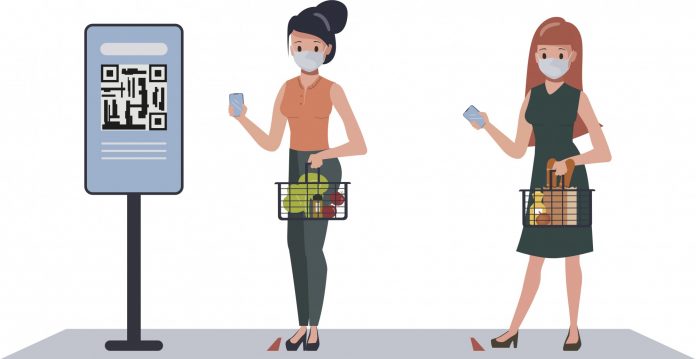Use of the Service NSW QR code will be mandatory at all NSW workplaces and retail businesses from Monday, 12 July.
Minister for Digital and Customer Service Victor Dominello says expanding the mandate would give NSW Health contact tracers real-time access to QR code data from a greater number of venues including supermarkets, retail stores, gyms and offices.
“This is about keeping customers and staff safe and getting all businesses open again as soon as possible,” he says.
“We know the Delta variant of Covid-19 moves quickly and we must do everything we can to get it under control.
“While many retail businesses, including large supermarkets and hardware chains, have voluntarily adopted the Service NSW QR code, this measure will ensure check-in rates are high across the board and contact tracers have access to reliable records.”
The finer details
From 12 July, these businesses will need to display the Service NSW QR code and take reasonable steps to ensure people entering their premises check-in using the Service NSW QR codes or digital sign-in sheet:
- Retail businesses and supermarkets
- Individual shops within shopping centres
- Shopping centres will also be asked to display QR codes at entry points where practicable
- Gyms
- Offices, including call centres
- Manufacturing and warehousing
- Universities and TAFE
- Schools including teachers and visitors (such as parents and contractors) but excluding students.
Businesses such as hospitality and hairdressers that were already using the Service NSW QR code will also need to ensure staff and visitors such as maintenance workers and delivery drivers check-in, when they resume services after the lockdown period.
Hospitality businesses will now need to extend the use of the Service NSW COVID-Safe check-in to all customers including takeaway orders.
Businesses that fail to comply with the new health order requirements may be subject to fines and in case of flagrant breaches, temporary closure orders.
Welcomed by industry, but support needed
The Australian Retailers Association (ARA) has welcomed the expansion.
The industry body, however, has highlighted the need for government authorities to “have the back” of retail staff on compliance and enforcement.
ARA CEO Paul Zahra says retailers have been supportive of Covid safety measures throughout the pandemic and have successfully navigated the uptake of QR codes in other jurisdictions.
“QR codes are recognised as a valuable means of protecting retailers and their customers in the unfortunate instance of Covid outbreaks and many retailers have embraced these proactively, ahead of today’s mandate,” he says.
“The key ongoing challenge for retailers in this area is around enforcement, which is a matter for the appropriate authorities and not something that can be taken on by retail staff themselves. A consistent and practical approach to enforcement across NSW, and around the country, is critical to safety and successful adoption.
“We are still all in this together – and never more so with multi-jurisdiction lockdowns in place. Successful QR code compliance within a retail setting is a three-way responsibility. Government must enforce, businesses must play their part in encouraging use and customer compliance is paramount.
“Unfortunately, customer aggression has been a big issue for retail staff throughout the pandemic and this issue is heightened whenever new measures are introduced. Public awareness and education around new measures is critical to minimise confusion or instances of customer abuse.
“We are pleased to have had the opportunity to input into the NSW government strategy and that the government has adopted many of the ARA’s recommendations around QR code adoption.”




